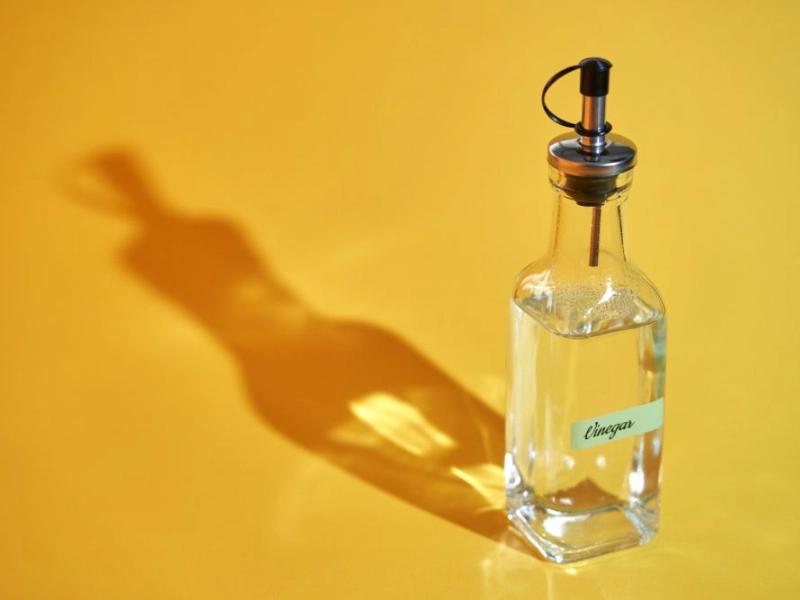Advertisement
13. White Vinegar and Water: A Simple Yet Effective Substitute

Advertisement
Another good substitute for cooking sherry is white vinegar, especially appreciated for its strong, acidic taste that many recipes may fairly replicate the tang of sherry. When cooking sherry is not available, this common home ingredient provides an easy and reasonably priced substitute. Still, white vinegar has a far more powerful and noticeable acidity than cooking sherry. For this reason, it calls for careful diluting with water to get a more balanced taste sensation without overwhelming your cuisine. The advised ratio is equal parts white vinegar and water to produce a good replacement. For one cup of cooking sherry, specifically, mix half a cup of white vinegar with half a cup of water in your recipe. By diluting the strong acidity of the white vinegar, this helps to produce a more subtle taste that can more faithfully reflect the complexity of cooking sherry. From marinades and sauces to soups and stews, this substitute's adaptability qualifies for a great spectrum of cooking uses. For recipes calling for sweet sherry, another step is required to reproduce the usually present sweetness in this variety. In certain situations, sweetening the white vinegar and water mixture can aid to reach the intended level. Usually, one should use two tablespoons of sugar for every cup of vinegar-water mixture. In recipes for desserts or sweet sauces where the sugary notes of sweet sherry are absolutely vital in the whole flavour profile, this addition of sweetness can be especially helpful. One should also pay attention to the kind of sugar utilised as it affects the taste at last. Although granulated white sugar is a popular choice, experimenting with substitutes like brown sugar or honey can provide your replacement extra depth and complexity. You really should think about the whole flavour balance of your food when utilising this white vinegar and water substitution. Although it can adequately supply the acidity and liquid component cooking sherry would add, it might lack some of the complex tastes resulting from sherry fermentation. To get the right taste, then, you might find it helpful to change other seasonings or components in your recipe. This could call for including herbs and spices that accentuate the tastes in your meal or a bit of fruit juice for complexity and sweetness. Furthermore, the white vinegar and water replacement might be especially helpful in dishes where cooking sherry serves mainly to deglaze a pan or add acidity. Under these conditions, the replacement can be rather good, lifting fond from the pan's bottom and producing rich sauces. To get the appropriate taste profile, though, in recipes where sherry's unique flavour is a major component you might have to make more major changes or look at other substitutes.
